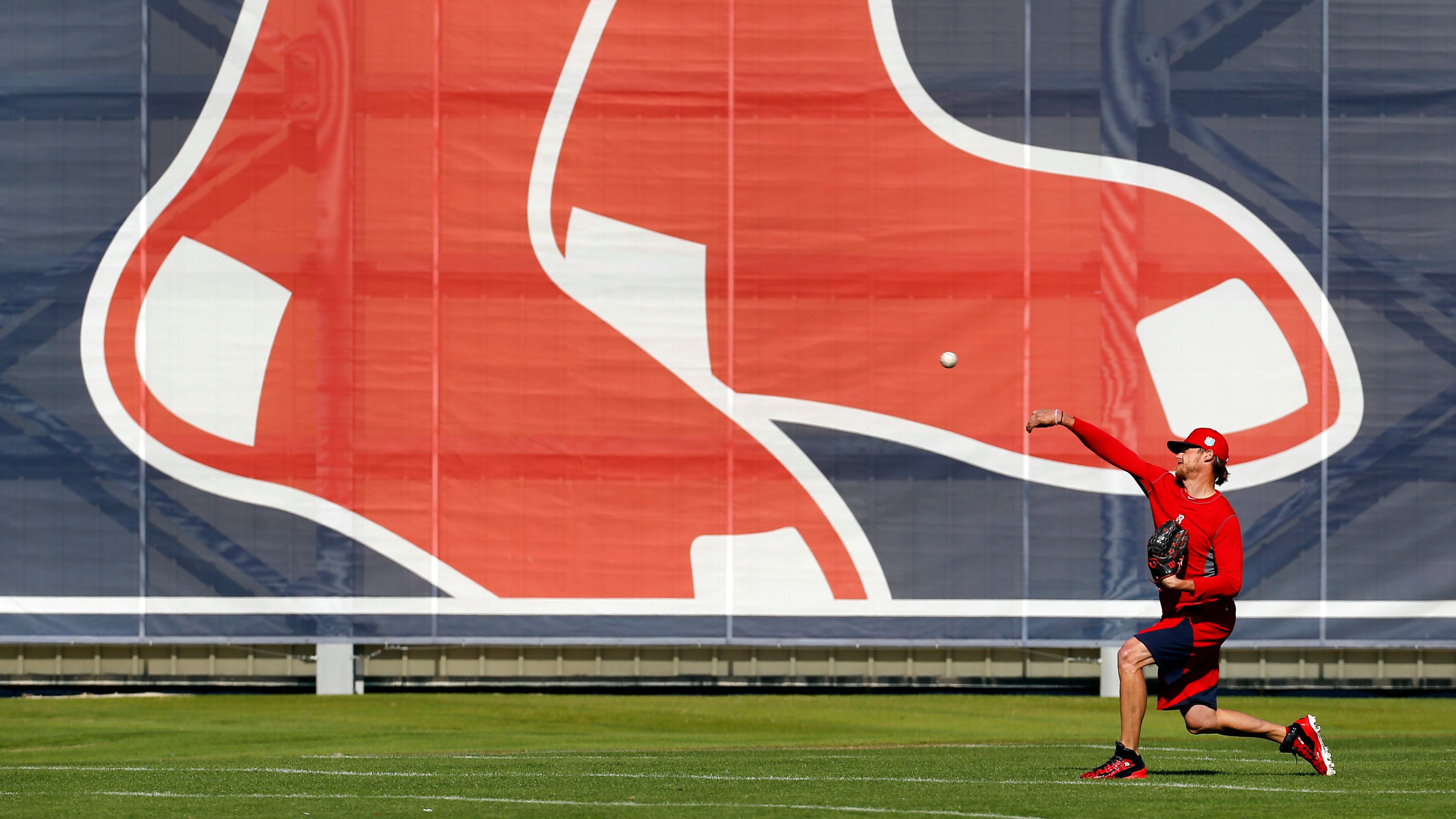Baseball toughens up on chew as sky darkens for big dippers

AP Sports Writers Stephen Whyno and Greg Beacham and AP freelance writers Ken Powtak and Jeff Odom contributed to this report.
Red Sox pitcher Clay Buchholz spit some chew into a bottle at his locker, then dipped into the latest notice from baseball.
Big leaguers are now getting a written reminder that smokeless tobacco is banned at stadiums in Boston, San Francisco and Los Angeles.
One-page letters are being put in clubhouse stalls throughout spring training, where there is no prohibition. The notes come jointly from Major League Baseball and the players' union.
So, will Buchholz quit?
"That'll probably happen," he said. "If you get reprimanded for something, there comes a time where you're tired of paying fines for something you don't have to do or doesn't make you any better."
"You've got to obey the rules or there's consequences to it. We'll probably learn more about that when we get up North," he said at camp in Fort Myers, Florida.
Washington Nationals manager Dusty Baker was a big dipper for a long time. He's cut back over the years, but still might pop in a pinch when games get tight.
"It's a bad influence for the kids. Big time. I'll say that. But also they're adults, too, at the same time," Baker said.
"We'll see," he said. "My daughter used to put water in my can and put it back in my truck. Or my son, he has lip check — 'Get it out, Dad!'"
Local laws will prohibit the use of all tobacco products at Fenway Park, Dodger Stadium and AT&T Park this year, meaning players, team personnel, umpires and fans. The letter advises the same ban will take effect at every California ballpark in December.
"I support it," new Dodgers manager Dave Roberts said. "I think that the intentions are there, and there's obviously going to be some resistance with players."
"Like it or not, players are role models, and we have a platform as coaches and players. So if that's the law, then we definitely support it," he said.
Similar legislation has been proposed in New York City, and both the Mets and Yankees say they back such a ban at their parks.
"Preventing children from being exposed to smokeless tobacco is an important initiative and we are glad to play our part," the Mets said in a statement.
"Major League Baseball has long supported a ban of smokeless tobacco at the major league level and the New York Yankees fully support the proposed local law," they said.
The letter being distributed to players on 40-man rosters and teams this spring says: "Please note that these are city ordinances and not rules established by Major League Baseball. However, the commissioner's office will be monitoring players and club personnel for compliance with the regulations."
Smokeless tobacco isn't permitted throughout the minor leagues. There is no ban on dipping in the majors, and the issue is certain to be discussed in upcoming labor talks between MLB and the union on the contract that expires Dec. 1.
Going back more than a century, even before Bull Durham tobacco signs were plastered all over outfield walls, baseball was filled with pictures of players with a chaw in their cheek.
Buchholz did take a break, for a while.
"I stopped in the offseason and baseball, it goes along with the territory for me," he said. "It's not a good habit."
Over the years, in collective bargaining, MLB and the union have tried to lower that profile.
Players, managers and coaches now can't stick tobacco tins, cans or pouches in their pockets when they're on the field or in plain sight of fans. No wads stuck in the mouth during TV interviews, either.
In their letter, MLB and the union said it would provide "nicotine replacement therapy products to those players who wish to use them as substitutes. A shipment of various products including lozenges, gum, and patches will be sent to each club free of charge in spring training, and throughout the 2016 season."
The letter included a reminder that Dr. Michael Steinberg, director of the Rutgers University tobacco dependence program, had previously been hired as a consultant to help players develop a treatment plan, if they wanted.
Toronto Blue Jays manager John Gibbons applauded the effort to cut down on chaw. He quit a couple years ago after Hall of Famer Tony Gwynn — a career-long dipper — died at 54 of salivary gland cancer.
"I was a tobacco user for a lot of years. I'm not proud of that. I finally was able to quit. It's a dirty, filthy habit," he said.
"I wouldn't want my kids doing it. You hope in some way, they can eliminate it and wipe it out. I'm sure there will be some fights over that, especially in this election year. I'm sure that'll be brought up. But, hey, if you can get rid of it, I'm all for that," he said.


